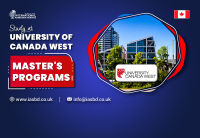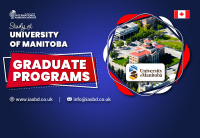Sweden offers high-quality education with a strong emphasis on innovation, critical thinking and sustainability. For Bangladeshi students, studying in Sweden is an exciting opportunity. However, understanding the cost of study is crucial to making an informed decision.
Costs of Postgraduate Diploma (PGD) Degree in Sweden
The cost of pursuing a Postgraduate Diploma in Sweden typically ranges between SEK 80,000 and SEK 150,000 per year, but this amount can vary depending on the institution and program. Most PGD programs are shorter than Master's degrees, often lasting one year. Public universities generally offer lower tuition fees than private institutions. It's important to check specific university websites for the most accurate cost estimates.
Costs of a Bachelor's Degree in Sweden
For a Bachelor's degree in Sweden, tuition fees for international students range from SEK 80,000 to SEK 150,000 per year. Public universities charge lower fees compared to private institutions. The cost can vary based on the program and university. For example, a program in engineering or business may be priced at the higher end of the spectrum.
Living expenses, including accommodation, food, transport and personal items, can range between SEK 8,000 and SEK 12,000 monthly. However, students can manage costs effectively by utilizing affordable housing options and student discounts.
Costs of Master's Degree in Sweden
The cost of a Master's degree in Sweden ranges from SEK 100,000 to SEK 180,000 per year, depending on the program and university. Engineering, business and technology programs tend to be more expensive. Tuition fees are applicable for both undergraduate and postgraduate studies for students applying to non-EU countries like Bangladesh.
Living costs remain similar to the Bachelor's level, around SEK 8,000 to SEK 12,000 monthly. Additionally, many students work part-time to support their living expenses. Sweden offers many job opportunities for international students, particularly in larger cities like Stockholm and Gothenburg.
Costs of PhD Degree in Sweden
PhD programs in Sweden are unique compared to many other countries. Generally, PhD students are employed by universities and paid a salary. PhD candidates in Sweden are considered employees rather than traditional students, which means they receive monthly wages ranging from SEK 27,000 to SEK 35,000.
The key advantage of pursuing a PhD in Sweden for international students is that they do not need to pay tuition fees. However, students are still responsible for living expenses, which can be between SEK 8,000 and SEK 12,000 per month.
Financial Aid and Scholarships in Sweden
Sweden provides various scholarships to international students, including those from Bangladesh. The Swedish Institute Scholarships for Global Professionals (SISGP) is a prestigious scholarship for students pursuing Master's programs. Other scholarships may be available directly from universities, covering tuition fees, living expenses, or both.
Many Swedish universities also offer work opportunities, allowing students to gain work experience while studying. This can significantly reduce living costs and help students immerse themselves in Swedish culture.
Student Life and Accommodation Costs
Accommodation is a significant part of student expenses in Sweden. Student housing typically costs between SEK 3,000 and SEK 7,000 per month, depending on the location and type of housing. Stockholm and Gothenburg have higher living costs than smaller cities.
Public transportation is affordable, with student discounts available for monthly passes. Grocery shopping is inexpensive, especially at budget-friendly stores like Lidl or ICA. Eating out and entertainment options may be costlier in significant cities, but student discounts are available.
Sweden provides an outstanding educational experience, but students from Bangladesh need to be prepared for financial commitments. Whether you're pursuing a Bachelor's, Master's, PGD, or PhD, you must consider tuition fees and living expenses. With the availability of scholarships, part-time job opportunities and affordable housing options, the overall cost can be manageable for students ready to make the most of this enriching experience.


























